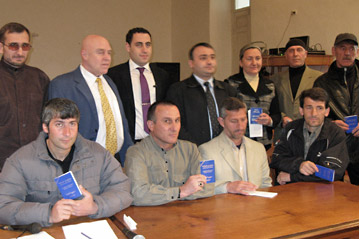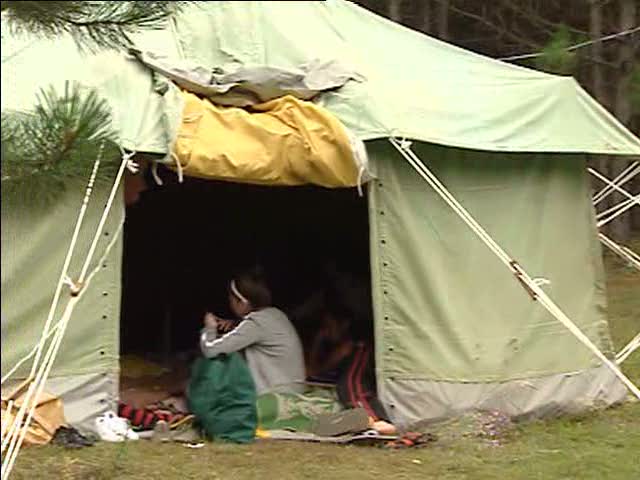- Text size
 |
|  |
|  |
| 
- Français
Georgia issues travel documents to Chechen refugees
News Stories, 15 April 2009

DUISI, Georgia, April 15 (UNHCR) – The Georgian government has for the first time granted Chechen refugees the right to travel overseas, earning praise from the UN refugee agency for honouring its promises.
The first Convention Travel Documents issued by Georgia were given to eight Chechens at a ceremony last Friday in the Duisi Community Centre, which is located in Georgia's Pankisi Gorge bordering Russia's Chechen Republic.
Many more of the almost 1,000 Chechen refugees in Georgia are expected to submit requests for travel documents to the local Civil Registration Agency office. It will take about two weeks to process an application and issue the document.
The right to travel is important for refugees because it allows them to take advantage of opportunities for education, training or employment. It can also be an essential prerequisite to a durable solution for refugees, including the possibility of local integration. Moreover, it helps prevent irregular movement as it establishes clear readmission obligations by the issuing state.
"Travel documents are very important for us. Now we can visit our relatives and leave the country," said Chechen refugee Kameta, who has not seen her relatives since fleeing in 1999 to Duisi, one of eight villages in the broad valley region of the Pankisi Gorge. She was the first woman to get the document.
The 1951 Refugee Convention provides the basis for the issuance of the Convention Travel Document, but the experience of UNHCR has shown that its availability for refugees is not always accepted by governments as a matter of course.
Peter Nicolaus, UNHCR's representative in Georgia, hailed the country for standing by the promise it made when it signed the Convention in 1989. "That Georgia remembered at a time when it has many other concerns on its mind, such as over 400,000 IDPs [internally displaced people], makes this even more remarkable," he said.
"You are our friends and members of our society and you deserve the same rights and freedom [as Georgian citizens]," Minister of Refugees and Accommodation Koba Subeliani told guests and refugees attending the presentation ceremony on Duisi.
UNHCR is providing protection and humanitarian assistance to 992 Chechen refugees, around 280,000 Georgian IDPs and 1,500 stateless people in a young democracy that is bearing the consequences of secessionist conflicts in the breakaway zones of Abkhazia and South Ossetia as well as a brief conflict last August with the Russian Federation.
By Suzanne Murray-Jones in Duisi, Georgia



































